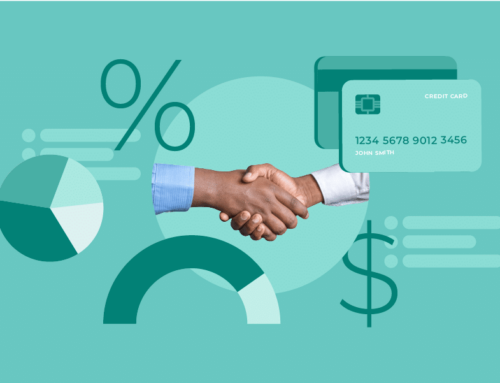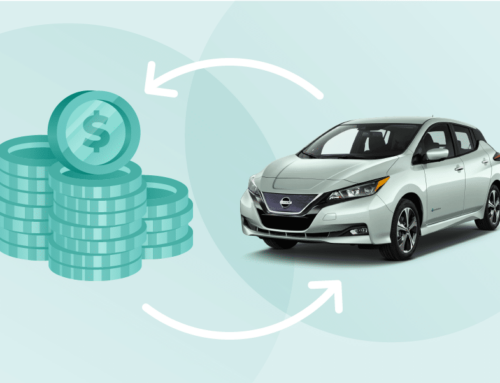Many Canadians face financial hardship due to unexpected events like job loss, reduced work hours, personal injury, or even an unanticipated large expense. During such events, many fall back on the savings or credit products they may have. While this is a common solution, it isn’t always ideal as it can diminish your savings, increase your debt level and even affect your credit score. As such, payment deferrals, while uncommon, are a good alternative solution.
What Are Payment Deferrals?
Payment deferral is a contract between you and your lender or service provider that allows you to skip your payments for a specific amount of time with no penalty. However, do keep in mind that a payment deferral does not mean your payments are cancelled or forgiven, it simply puts a pause on your payments for a specific amount of time. The amount of time you can delay your payments varies by lender or service provider but can go up to 12 months.
What Kind of Payments Can You Defer?
Whether or not you can defer payment is dependent on your lender or service provider. Usually, credit card payments, car loan payments, mortgages, loan payments, lines of credit, business loans and even utility bills such as phone and electricity can all be deferred. Bear in mind, a deferral is not a service that has a list of requirements that you can simply apply and qualify for. Ther is no rule mandated by the government that requires lenders and creditors to agree to your request for a deferral. It is granted on a case by case basis by each lender or service provider.
How Do Payment Deferrals Work?
No matter what kind of payments you’re trying to defer, the process is virtually the same. You start by calling and discussing your situation with your lender or provider to see what solutions are available to you. Most lenders and providers will be willing to offer you some financial relief in the form of a payment deferral as its better than having you default on them. If you’re granted a deferral, interest may accrue on your outstanding balance during the deferral period as part of the agreement with your lender. As a result, your balance will increase and cost you more down the line.
Depending on your arrangement, your deferrals and accrued interest will either be:
- tacked to the end of your payment schedule, which will increase the length of your repayment period
- distributed over the length of your current repayment schedule, which will increase your monthly payments.
Note: In some cases, a lender or provider will offer you a reduced payment or a reduced interest rate instead of a deferral.
Benefits of Deferring a Payment
Deferring your loan or utility payments can provide you with the financial relief you need to get your finances back in order. While it isn’t a long-term solution, a payment deferral can provide you with certain temporary benefits:
- Protects Your Credit Score – When you defer a payment, it is an agreement made between you and your lender or service provider. As such, your non-payments during the deferral period will not affect your credit score.
- Frees up Cash – By deferring certain payments, you’ll be able to free up some cash. Therefore letting you concentrate on more immediate expenses such as food, shelter or other debts that must be paid.
- Helps you Avoid Car Repossession or Foreclosure – If you’re unable to make your car or mortgage payments, having them deferred can save you from your car being repossessed or from your home being foreclosed.
- Reduce Stress – Deferring payments is a great stress reliever as it takes some of the financial burdens off your shoulders. This in turn can provide you with the peace of mind you need to get your finances back on order.
- Easy on Your Savings – Rather than depleting your savings, a deferral can help you manage your financial hardship in a cost-effective way.
- Less Debt – A payment deferral is also a better option than relying on different credit products as they ultimately will increase your debt level and credit utilization ratio. This in turn can affect your credit score and lead to unmanageable amounts of debt.
Drawbacks of Deferring a Payment
Now that you know the benefits of deferring, here are some drawbacks you should be aware of as well.
- Accrued Interest – Most lenders will still charge interest on your balance during the time your defer your payments. This in turn will lead to you paying interest on interest once your restart your payments after deferral.
- Pay Interest – Depending on your lender, you may still have to pay interest during the deferral period.
- Credit score – Many Canadians who have deferred their payments have complained about their credit score being affected. Most lenders and providers have an automatic system that reports missed payments to the credit bureau. As such, if your lender or provider does not properly adjust their system, your deferral may be seen as a missed payment. Monitoring your credit score closely during such arrangements is key to combatting against such errors and rectifying the situation quickly.
How Do You Get a Payment Deferral?
To defer a payment, simply contact your bank, lender or service provider to discuss your eligibility. Deferrals are granted on a case-by-case basis and each lender or service provider has its own set of requirements. When you call, be ready to explain your financial situation. Your ability to outline your income shortage and your reasoning on why a deferral is the best solution for you will affect your lender or service provider’s decision.
Bottom Line
If you need help dealing with your debt or bill payments due to some unexpected financial hardships, be sure to contact your lender or provider to discuss your options. Most lenders and providers are willing to work with you, especially, if you’ve been a good client in the past. Even if you don’t qualify for a payment deferral, some may offer other alternatives such as a reduced interest rate or a reduced payment. Just be sure to get in front of the situation and take action before missing any payments.
Written by Priya Correia from Loans Canada | Contributing Writer for Marble Financial






